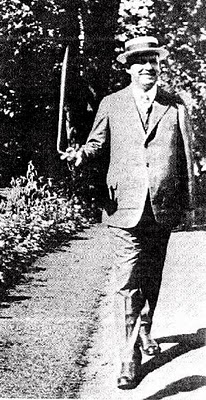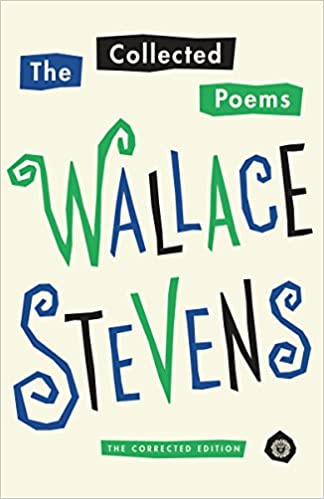
The House Was Quiet and the World Was Calm
Wallace Stevens
The house was quiet and the world was calm.
The reader became the book; and summer night
Was like the conscious being of the book.
The house was quiet and the world was calm.
The words were spoken as if there was no book,
Except that the reader leaned above the page,
Wanted to lean, wanted much most to be
The scholar to whom his book is true, to whom
The summer night is like a perfection of thought.
The house was quiet because it had to be.
The quiet was part of the meaning, part of the mind:
The access of perfection to the page.
And the world was calm. The truth in a calm world,
In which there is no other meaning, itself
Is calm, itself is summer and night, itself
Is the reader leaning late and reading there.
(from “Harmonium,” 1923)
An interesting thing about internet postings of poetry is that the posters often “clean up” intentional word choices and spellings. Poor e.e. cummings is often a victim of this, but it happens to Stevens too. The poem above usually appears online with either “much” or “most” deleted from line 7, even though every edition of Harmonium and the Collected Works, as well as the many poetry-appreciation anthologies in which it appears, publish the line that Stevens actually wrote: “Wanted to lean, wanted much most to be…” So perhaps that is the best argument I can make for books, for printed, paper-and-ink books: “The access of perfection to the page.”


You must be logged in to post a comment.